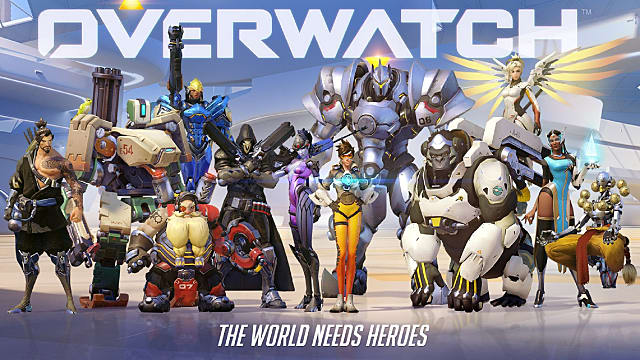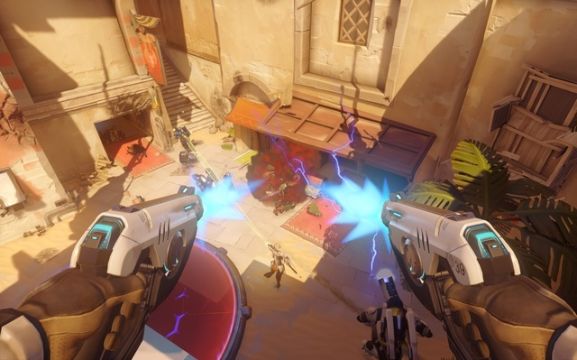Overwatch Hype!
During the Overwatch beta reveal Twitch viewership spiked to over 40 thousand, and though viewership has declined since then, the game was 3rd or 4th on Twitch for a substantial amount of time after the beta began. Amateur and pro players alike are lining up to take a crack at the game and there is no doubt – based on initial interest and Blizzard’s track record – that it has the potential to be one of the most popular games on the market.
The potential market disruption that Overwatch poses raises some interesting questions, especially with regard to the game’s competitors – CS:GO, Battlefield, Call of Duty TF2, Quake, Unreal, etc. The game that has the most to lose, perhaps, is CS:GO, which currently reigns supreme as the leading FPS eSport. If Overwatch takes off as it is posed to do, will it sap viewers, pro teams, and sponsors from CS:GO?
The Future of eSports?
It’s probably premature to make any concrete predictions about how Overwatch will impact the eSports scene, and eSports as a whole is still young, making it hard to know which games will succeed and which will fail. Some games, like Guild Wars 2, never really take off despite fan interest and company support, while others – League of Legends comes to mind – exceeded even the wildest imaginings of its players.
There are some things that we can say for sure about Overwatch though – it’s definitely got eSport appeal, and that’s without any indication of whether or not Blizzard will emphasize the eSport aspect of the game (with Heroes of the Storm, for example, they have left that largely up to the players, and the game has yet to take off in terms of professional play). Several teams have already expressed interest in fielding professional Overwatch sides, including Fnatic and PkD, and the game is still in beta. Several pros from other games have been given beta invites or are waiting for a chance to try the game out, and initial reactions are very positive.
Flash vs. Realism
Overwatch is also a very visually appealing game – the graphics are bright, striking, and simple without being dull or cartoony. Most abilities have a distinct visual signature – especially ultimates like Hanzo’s Dragonstrike or Zarya’s Graviton surge – making the action easy to follow. Wombo combos are common, turnarounds are likely, and games are often decided in the final, nail-biting seconds. High-level play has the potential to be fast, dynamic, and very exciting. So it stands to reason that, as a newer, prettier FPS, Overwatch is going to supplant CS:GO in the eSports scene, right?
Well, maybe not. While Overwatch is almost certainly going to steal some viewers and possibly some players from Counter-Strike, the games are barely in the same genre, and have vastly different appeals. CS:GO is a highly-tactical game that rewards players with excellent reflexes, situational awareness, and split-second decision making skills. Players have guns, grenades, and knives to work with – that’s it, and when your team is dead, the round is over.
Not so in Overwatch, which is a game of archetypes, objectives, teamwork, cooldown management and combos, with frequent and unlimited respawns. It draws at least as heavily on the MOBA genre as it does from first-person shooters. That’s not to say that player skill won’t matter in Overwatch, but a player with average FPS skills but exceptional map awareness, flexibility, and strategic thinking could excel in Overwatch and not in CS:GO.
If anything, Overwatch will probably draw viewers from several genres, especially MOBA players or fans who like the objective-based play and flashy combos but are looking for something faster paced. And while Overwatch may eventually overshadow CS:GO as an eSport, it seems unlikely that it will entirely replace the older game. CS:GO occupies a unique space as a purely skill-based and refined FPS, and it will most likely take a sequel or a more direct competitor for it to be truly replaced.




